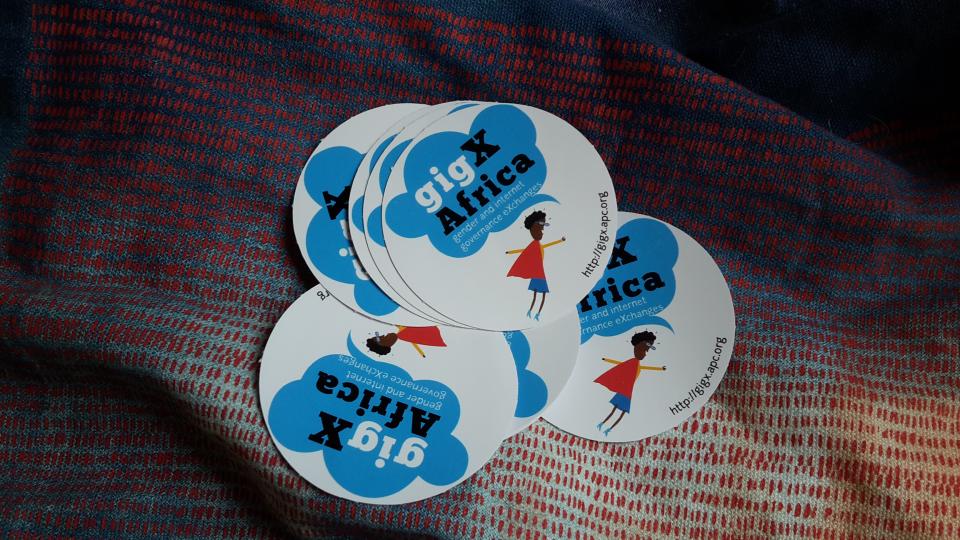
The Association for Progressive Communications’ Caroline Tagny interviewed Chenai Chair, a participant of the Africa Gender and Internet Governance Exchange, on her experience.
Chenai Chair is a researcher with Research ICT Africa. She holds an MSocSci specialising in global studies, and a BSocSci in gender studies and industrial relations from the University of Cape Town. Her areas of specialisation include conducting qualitative studies with a focus on gender, youth and the informal sector as well as tracking pricing patterns in the supply side of telecommunications in Africa. The most exciting and challenging thing in her career is keeping up with technology trends; their impact on socioeconomic development and accompanying policy and regulatory issues. With her participation in the African Scholl on Internet Governance (AFRISIG) and the Internet Governance Forum (IGF), she hoped to bring to the fore the importance of African based evidence for determining the way forward in internet governance. She hoped to take away an understanding of gender and internet governance rights issues and a collaborative network.
Caroline Tagny: Perhaps you could tell me about why you decided to apply for Afrisig in the first place?
Chenai: I decided to apply because internet governance is a part of what I do. I thought it could be something that would be interesting, and I didn’t have a dedicated time to learning about internet governance with all my other work. This workshop would allow me to be immersed in the topic for four days. I also applied last year but I was denied the joy of Mauritius.
CT: What was your reaction when we asked “don’t you want to attend the Gender and Internet Governace Exchange (gigX) instead?”
Chenai: Well actually it wasn’t a “do you want” it was a “you are invited” ! I was excited and nervous, I was like internet and gender? I haven’t looked at gender in a while, but, oh ok, this is exciting. And I remember I told my boss, I’ve been invited to come and attend Afrisig but I’m going to the gender and internet governance exchange and then the IGF, this is so cool. And she was like “oh that’s excellent, that’s great, let’s do it.” I was quite excited but as time went on I became a bit skeptical because I wanted to go to Afrisig, how am I going to learn all that stuff? But then I figured we’ll see how it goes.
CT: I remember you telling us at the beginning you were worried you were going to miss out on something that would have been covered in Afrisig.
Chenai: Yes that was it. When I left work I wasn’t prepped on gender and internet governance, I was prepped on internet governance issues, so multi-stakeholder forums, issues around net neutrality, which is what we had been working on, issues around zero-rating. There had not been a mention of gender in the internet governance framework, gender and ICT and access yes, but not gender in the internet governance space. So I thought I was going to come to this conference, and I’m going to leave without having been able, when I got back to work, to contribute to the internet governance debate. I thought gender, we were going to discuss how to be fighting for rights and not going to be interrogating some of the issues that come out in internet governance.
CT: After doing the whole course and going to the Africa IGF, how do you see your work, as a researcher, linking to what you have learned through the week?
Chenai: What I have learned from gigX is that there is a lack of gender integration in the work that I do. And sometimes that is the kind of indicators, that limits us and we can’t really interrogate gender in that aspect. But in terms of actual lack of someone who is really taking on the drive of gender, I realised that my work, whenever we do more research, needs to keep interrogating the intersectionalities. I need to keep on bringing up the issues of power disparities and the issues on who exactly we are addressing.
And then attending the IGF, being able to sit on a panel [Chenai presented on the panel on human rights at the Africa IGF], was an eye-opener. In that moment it was fantastic, and then afterwards I really thought a lot about women who were going to come up to me and say “congratulations, well done, you are a young person who hasspoken” but actually only the gigX people came up to me and said congratulations. It further made me realise in speaking on gender issues it is not only to engage men but women too.
CT: It shows that there is still a lot of work to be done in internet governance spaces, right?
Chenai: There is! And I think the work is with both women and men. One often find women already entrenched in these spaces and may be gate keepers, determining what issues should be raised or who should speak on what. As the youngest panelist that day speaking on issues of gender and internet rights, it showed the need to open these spaces to allow for substantial participation with issues regarding gender.
CT: To finish, maybe you could tell us the points that you made in that presentation in this panel on human rights. What were your five talking points?
Chenai: The first one was the reason I came to the gender and internet governance exchange, the lack of voices in this forum and the panelists mentioning gender. They were not going in depth. Then I spoke about the importance of offline inequality being translated to online inequality. Even though we were talking about the internet, human rights are underpinning internet rights. Women still face violence against them, where it is transposed from offline to online, where the perpetrators are the same people who want to silence them. And then you have the issue of content being restricted for the purpose of protecting traditional values, so women don’t have access to reproductive rights information and content that is relevant to them. I spoke about how the online space can actually help challenge stereotypes and women can reclaim that they are not just minors who need protection, they are active citizens. I spoke about the issues of access, where research has been done mainly on connecting women by giving them cellphones. But actually the issues of access go far beyond the ICTs as most women are the ones who populate the bottom of the pyramid in terms of level of education and limited income, to be able to actually fully utilize the internet.
CT: Thank you! Do you have a last word for us?
Chenai: Thank you for the opportunity!
- 5673 views






Add new comment